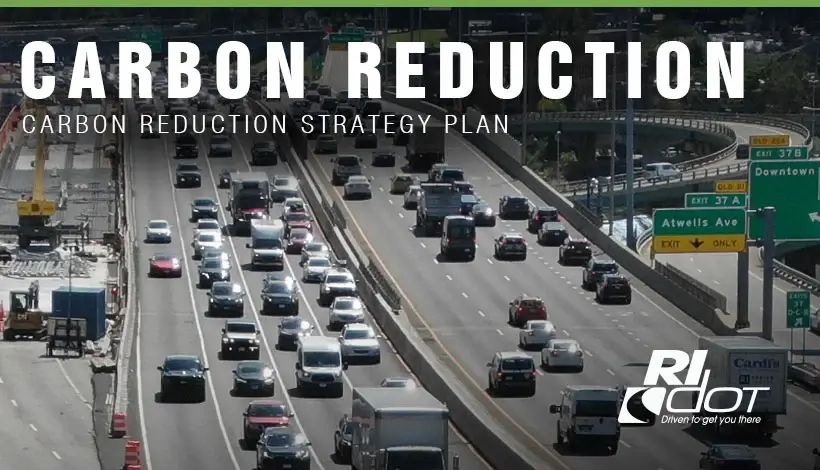The Rhode Island Department of Transportation has been required to submit a carbon reduction plan to reduce greenhouse gas emissions in the transportation sector in accordance with the Infrastructure Investment and Jobs Act. RIDOT set up an online feedback system where it outlined its proposal and facilitated public comments. While all of this sounds like a step in the right direction, RIDOT intentionally complicated the process, and their plan was demonstrably inadequate.
Notably, public comment was only available for a brief period; even the months leading up to it hinted at that potentially being a problem (among many other things). When it came time for public input, nowhere on any social media or email did RIDOT advertise it. Essentially, you had to be in the communication loop with legislators, advocates, or other figures to find out that information. When it did come time for the public to review and give input, a buggy online feedback system was put into place with their outlined plan available for a short time. Interestingly, RIDOT only gave itself around two weeks to adjust its final plan before submission.
Their plan can be summarized as inadequate, with a strong focus on motor vehicles and little care for non-automobile infrastructure or encouragement. It was extremely lackluster, and with RIDOT’s poor reputation and longstanding car focus, it was questioned whether or not they’d even amuse any criticism. However, after the public input closed, the Rhode Island Attorney General released a statement heavily criticizing the plan for being just that: lackluster. Then, a few days later, RIDOT adjusted part of their plan, giving just an ounce of care and a small bit of funding to anything but automobiles. Still, it remains woefully inadequate, and until there is a change in leadership at RIDOT, Rhode Island will continue to stumble in the transportation sector.
Below is an article we wrote and submitted to RIDOT for feedback.
